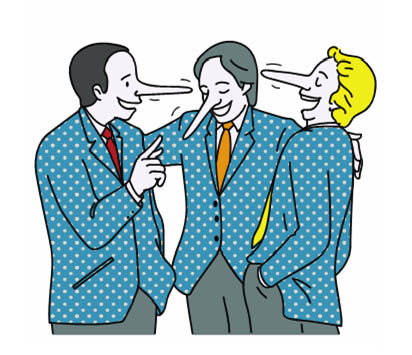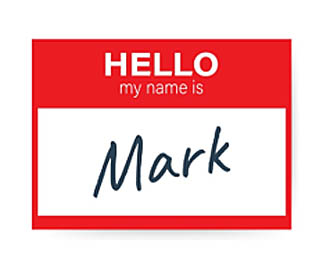Fake online reviews muddy the true nature and reputation of a business. Whether inflating its popularity or spreading damaging untruths, fake reviews are always bad news. They destabilize a delicate balance of trust in a product or service, putting the whole thing into question in the eyes of a consumer.
It turns out that spotting fakes is harder than most of us would like to admit. While many of us fancy ourselves pretty nifty detectives, we’re wrong about fake reviews about 50% of the time according to research by Cornell University.
Luckily, though, the researchers behind the study devised a sophisticated system that identifies fakes accurately 9 out of 10 times. However, short reviews are harder to analyze. Plus, for businesses to benefit, we’d need the review platforms themselves to implement the system. This is doubtful as Google, Facebook, TripAdvisor, and the like tend to rely on reviews. Flagging too many as fakes could serve to discredit them.
So, while the technology remains a concept, there are patterns you can use today to spot fake reviews yourself. Whether it’s a competitor trying to bring you down, or a business owner blowing their own trumpet while posing as a customer, each one of the signs listed below adds to the probability that the review you’re seeing is probably ingenuine:
- The Review Is From India But The Business Is American
While an online business can operate from anywhere, it should be a warning sign when reviews come from faraway countries. Check the location of the person who left the review (this is usually tracked and provided by the review site). What does it say? If someone in Russia has left a review of a bar in Houston, it could be a fake.
- It Reads Like A Template
If a reviewer repeats the same phrases over and over, this is a red flag. Similarly, when the same person has left multiple reviews that sound like a broken record, think twice about trusting any of their comments. Lazy trolls tend to rely on templates for their creativity, while others repeat the same language on multiple reviews when fabricating stories numerous times. Making stuff up is exhausting!
- The Wording Is… Quite Odd
A tell-tale clue is a review full of pronouns and verbs: ‘I went… She ate… We bought’. It might seem like a normal way of talking but language research shows that liars tend to use a significant excess of verbs and pronouns than truth tellers. Reviews that overly focus on the reviewer, what they did, and how they feel – instead of specific events – should be taken with a grain of salt.

- Bad Grammar, Spelling & Punctuation
Is this the kind of writing that would see your English teacher have a field day marking? If the spelling and grammar are worse than bad, the review could be the product of a fake content farm based in overseas countries that don’t speak English as their first or second language. The punctuation could be pretty odd, too. Taking into account that locals may have limited written English skills, if bad spelling and grammar coincide with other factors from this list, there is a chance the review is a fake.
- The Review Is Super Vague
When the product or service that’s being reviewed is not described in detail, the person reviewing maybe never even tried it! Whether positive or negative, vague reviews are suspicious. Any reviews that feature a serious lack of specifics should ring alarm bells. Furthermore, how, as a potential customer reading reviews, could you possibly be assured of the validity of a review if you could never know what the person truly experienced? This type of review jumps to conclusions, and probably shouldn’t be trusted.
6. Suddenly, A Company’s Rating Changes Drastically
If a brand experiences a spike in positive or negative reviews may be a deliberate attempt to manipulate their reputation and star rating with fake reviews. This should be taken into consideration when observing such changes, especially if many similar reviews suddenly appear with no obvious precursor. However, it’s worth noting that new launches can skew public opinion. Plus, some firms ask their customer base for feedback periodically, which could explain it. Individual reviews matter.
7. The Reviewer’s Details Are Very Generic
Does the reviewer’s image look like a stock or promo shot? How about their name? Is it ‘John Smith, from Dallas’? Fake reviewers, trolls, competitors, and business owners trying to fool you into favoring their brand hide behind an air of anonymity. If you’ve spotted a review left by somebody with a very generic name and suspicious image, chances are it’s not reflective of a real experience.
8. The Same Person Leaves Similar Reviews
If a reviewer leaves only very positive or very critical reviews about everything, they may be a faker. You can check this out on Google by looking at other reviews left by the same contributor. Use the fake review-spotting skills you honed by reading this article to determine if they’re fake or not. If you conclude that they’re real but have extreme unilateral views about every brand online, they’re probably not worth trusting anyway.

9. There’s Excessive Background
Oftentimes, fakers seem confused in the way they structure their reviews. If there’s a lot of unnecessary context on the review, such as when and why the contributor tried the product or service, this is the sign that they may never actually did so. Too much background information is a tactic to ‘fill up’ review space with a story when you don’t have anything of value to say, such as details about the business itself.
10. Strange Behavior Online
Thanks to heaps of data from searches, databases and devices, Google and other such platforms can spot online entities that don’t act like ‘real humans’ by comparing them to other accounts. Let’s say a reviewer profile was set up a few moments before they posted their comment, and they never log in again, this is a significant, although not definite, sign of a fake.
Cutting Through the Cr*p & Trusting Reviews Again
As much as content farms, fake reviewers and spiteful competitors try to skew a reputation and spread falsities, reviews are really valuable, and we need to try and restore their honor.
They’re one of the only ways that consumers can gauge public opinion of a business. We need to ensure they stay an informative, useful, and trustworthy asset for both businesses and consumers.
Content removal services are standing up to malicious fake reviews by identifying them and challenging review sites to take them down to stop businesses from suffering unfairly. Will platforms start policing their contributors more stringently?
The methods will never be perfect – but we have to try to make them better.
Quality reviews serve to help consumers make informed choices, and businesses improve through constructive feedback. Use our tips above to try and cut through the time-wasting falsities and focus on real reviews we can all learn from.



